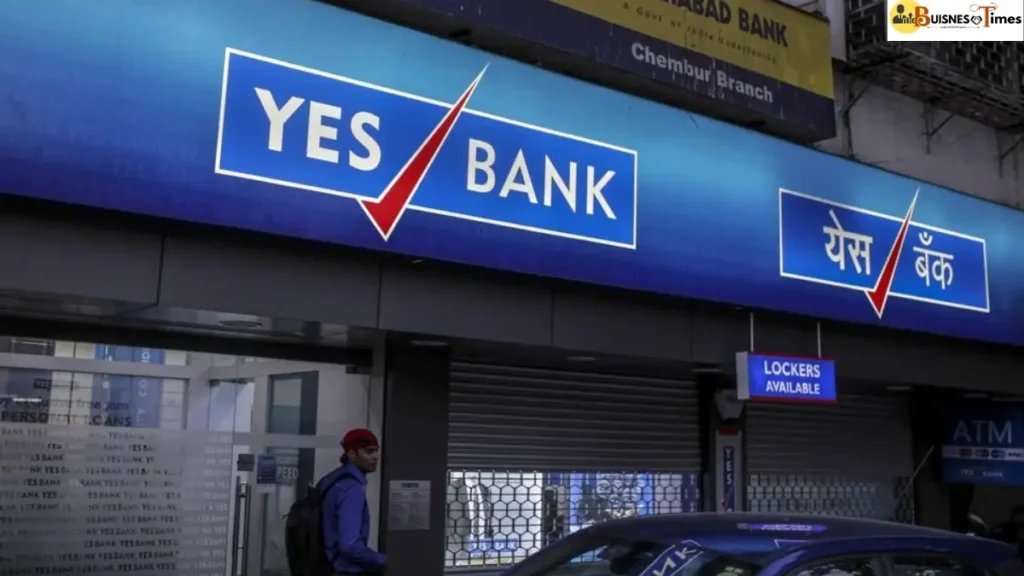In a landmark move for India’s financial sector, the Reserve Bank of India (RBI) has approved Japanese banking giant Sumitomo Mitsui Banking Corporation (SMBC) to acquire a 24.99% stake in Yes Bank, marking what could become the largest-ever foreign investment in an Indian bank.
Also Read: CBI Cracks Down on Anil Ambani: ₹2,929 Crore SBI Loan Fraud Shakes
The deal, valued at around $1.6 billion (approx. ₹13,300 crore), is expected to reshape Yes Bank’s trajectory and further boost investor confidence in India’s private banking space.

RBI’s Approval and Conditions
On August 22, 2025, Yes Bank confirmed through a regulatory filing that SMBC had received approval from the RBI to increase its stake. However, the central bank has clearly outlined conditions:
- The approval is valid for one year from the date of issuance.
- SMBC’s stake will be capped at 24.99% of the paid-up share capital/voting rights.
- Importantly, even after this significant investment, SMBC will not be classified as a “promoter” of Yes Bank, meaning it will not exercise absolute control over management or daily operations.
While SMBC’s growing influence is undeniable, the RBI’s conditions ensure that Yes Bank continues functioning under Indian regulatory norms and governance standards.
Details of the Investment
SMBC has been steadily building its position in Yes Bank since May 2025, when it first announced plans to purchase a 20% stake. That deal involved:
- A 13.19% stake purchase from the State Bank of India (SBI), one of Yes Bank’s largest rescuers during its 2020 crisis.
- A 6.81% stake acquisition from seven other Indian lenders, including Axis Bank, Bandhan Bank, Federal Bank, HDFC Bank, ICICI Bank, IDFC First Bank, and Kotak Mahindra Bank.
With RBI’s fresh approval, SMBC is now set to raise its shareholding to 24.99% by acquiring an additional 4.9% stake. This additional purchase awaits a green signal from the Competition Commission of India (CCI), which is expected to review the deal in the coming months.
Why This Investment Matters
This deal is historic for several reasons:
- Biggest Foreign Investment in Indian Banking
- At nearly $1.6 billion, this is one of the most substantial capital infusions by a foreign institution into an Indian bank.
- Boost to Yes Image
- Yes , once troubled by mounting bad loans and governance challenges, has been on a recovery path since 2020. This investment provides credibility and stability.
- Strategic Global Partnership
- With SMBC’s global expertise in corporate banking and financial services, Yes stands to gain advanced operational practices, stronger risk management, and international market access.
- Confidence in India’s Banking Sector
- The deal signals foreign investors’ strong faith in India’s banking sector at a time when global economic uncertainty persists.
What It Means for Yes Bank
Yes Bank has been gradually regaining its ground in India’s competitive private banking space. The SMBC investment comes at a time when the bank has shown strong financial performance in Q1FY26:
- Profit growth: Yes reported a 59.4% YoY jump in profits, reaching ₹801 crore in Q1FY26.
- Total income: The bank’s income rose to ₹9,348.11 crore, reflecting a 4.82% YoY growth.
- Balance sheet strength: Improved asset quality and reduced bad loans have reassured investors.
With SMBC on board, Yes will not only have access to global best practices but also additional financial muscle to expand lending, digital banking solutions, and corporate services.
Governance & Board Representation
As part of the agreement, SMBC will be allowed to nominate two directors to Yes Bank’s board. While this gives the Japanese institution a significant say in strategic matters, it does not translate into full control.
This balanced arrangement benefits both parties:
- This gains access to international expertise.
- RBI ensures that control remains within Indian regulatory boundaries.
- SMBC enjoys board-level influence without assuming promoter responsibilities.

Impact on India’s Banking Sector
The deal has sparked discussions in financial circles about what it means for the future of Indian banking:
- Foreign Capital Inflows: Such investments encourage other global institutions to consider India’s banking space as a lucrative opportunity.
- Competition Among Banks: With stronger foreign backing, Yes could become more aggressive in retail and corporate lending, challenging bigger players like HDFC Bank, ICICI Bank, and Axis Bank.
- Regulatory Balancing Act: RBI’s cautious approval—allowing foreign ownership but restricting promoter status—shows its intent to balance global investment with domestic control.
Market Reaction
Yes Bank shares witnessed heightened activity following the RBI nod. Market analysts believe the deal could push the stock upwards in the medium to long term, provided the bank maintains strong financial discipline.
Brokerage firms are optimistic that the deal may:
- Improve Yes capital adequacy ratio.
- Strengthen investor confidence.
- Drive higher institutional participation in its stock.
A Look Back: Yes Bank’s Journey
Yes Bank has had a turbulent journey over the past decade:
- 2004–2017: Rapid growth under founder Rana Kapoor made Yes one of the fastest-growing private lenders in India.
- 2018–2020: Mounting bad loans, mismanagement, and governance lapses led to a steep decline.
- 2020: RBI and SBI stepped in with a rescue package. Several banks injected capital to stabilize operations.
- 2021–2024: Slow but steady recovery through asset quality improvements, digital banking initiatives, and capital raising.
- 2025: Entry of SMBC marks a new chapter in Yes history, moving from recovery mode to growth mode.
Expert Opinions
Financial experts have hailed the deal as a vote of confidence in India’s financial system:
- Banking analysts note that this could “unlock new synergies” between Indian and Japanese banking practices.
- Economists argue that foreign capital of this scale supports India’s long-term ambition of becoming a global financial hub.
- Investor groups see this as a signal that Indian banks are now viewed as stable, attractive, and globally competitive.
What Lies Ahead
While the approval is a big win, challenges remain:
- CCI clearance will be crucial for the final stage of the acquisition.
- This must continue improving asset quality to sustain investor confidence.
- Integration of SMBC’s practices with Yes Bank’s operations may take time and effort.
If executed smoothly, this partnership could transform Yes into a globally aligned Indian bank, enhancing competitiveness at both domestic and international levels.
The RBI’s approval for Sumitomo Mitsui Banking Corporation to acquire a 24.99% stake in this Bank is more than just a financial transaction — it is a defining moment for India’s private banking sector.
For The , this is a chance to strengthen its foundation and accelerate its growth story. For India, it is proof that the world’s largest financial institutions see the country as a reliable, promising destination for long-term investment.
As global finance and Indian banking increasingly intersect, this deal may very well be remembered as a milestone in India’s economic journey.
Disclaimer: This article is intended for informational and educational purposes only. It does not constitute financial advice, investment recommendations, or endorsements. Readers are encouraged to consult professional advisors before making any financial or investment decisions.

